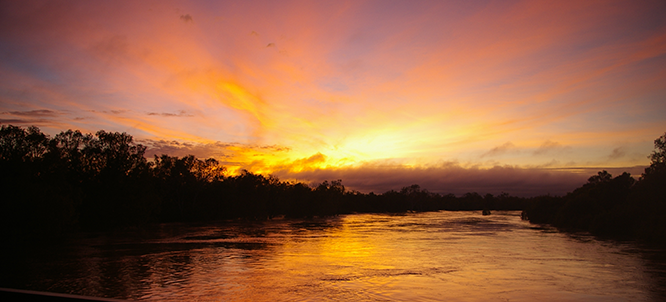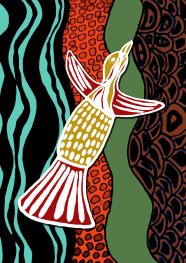Loading...
Presentation Type
Presentation
Location
The University of Notre Dame Australia Broome Campus
88 Guy Street Broome
The Hall NDB10
Start Date
3-5-2024 12:00 PM
Description
In the second Lucy Ngarbal Marshall Oration, Chair of Indigenous Studies, Steve Kinnane, will explore the historical context leading up to the Crocodile Hole Meeting in 1991 at Rugan in the East Kimberley, and intervening historical arc of self-determination over the past 30 plus years. Following the 1967 referendum and the resultant 1972 Aboriginal Affairs Planning Authority Act, Kimberley Aboriginal leaders pivoted to Canberra as they sought a regional voice beyond the colonial frame of Western Australia. These hopeful beginnings of speaking as a region beyond the often-empty promises of bilateral entanglements that characterised the Kimberley’s relationship with the nation state have shifted and changed across ‘fronts’ of action, sometimes responsive, sometimes strategic, but always regionally grounded. In 1989 Nugget H.C. Coombs’ (et al) book, Land of Promises, quoted Miriwoong Elder, Pearly Gordon’s statement that, ‘The Aboriginal people in Western Australia think this is the promised land because we have promises and broken promises. That’s all we have.’ Interweaving personal, historical and political narratives, Steve will reflect on the long Kimberley journey to move Beyond the Land of Promises, set against the need to recognise, value and generate outcomes based on community assets of cultural governance, cultural authority and Indigenous Knowledge, and the outcome of the 2023 Australian Indigenous Voice Referendum.
Recommended Citation
Kinnane, Stephen, "‘Lucy Ngarbal Marshall Oration by the Nulungu Chair of Indigenous Studies’" (2024). Workshops and Presentations. 2.
https://researchonline.nd.edu.au/nulungu_workshops_presentations/02/schedule/2
‘Lucy Ngarbal Marshall Oration by the Nulungu Chair of Indigenous Studies’
The University of Notre Dame Australia Broome Campus
88 Guy Street Broome
The Hall NDB10
In the second Lucy Ngarbal Marshall Oration, Chair of Indigenous Studies, Steve Kinnane, will explore the historical context leading up to the Crocodile Hole Meeting in 1991 at Rugan in the East Kimberley, and intervening historical arc of self-determination over the past 30 plus years. Following the 1967 referendum and the resultant 1972 Aboriginal Affairs Planning Authority Act, Kimberley Aboriginal leaders pivoted to Canberra as they sought a regional voice beyond the colonial frame of Western Australia. These hopeful beginnings of speaking as a region beyond the often-empty promises of bilateral entanglements that characterised the Kimberley’s relationship with the nation state have shifted and changed across ‘fronts’ of action, sometimes responsive, sometimes strategic, but always regionally grounded. In 1989 Nugget H.C. Coombs’ (et al) book, Land of Promises, quoted Miriwoong Elder, Pearly Gordon’s statement that, ‘The Aboriginal people in Western Australia think this is the promised land because we have promises and broken promises. That’s all we have.’ Interweaving personal, historical and political narratives, Steve will reflect on the long Kimberley journey to move Beyond the Land of Promises, set against the need to recognise, value and generate outcomes based on community assets of cultural governance, cultural authority and Indigenous Knowledge, and the outcome of the 2023 Australian Indigenous Voice Referendum.





